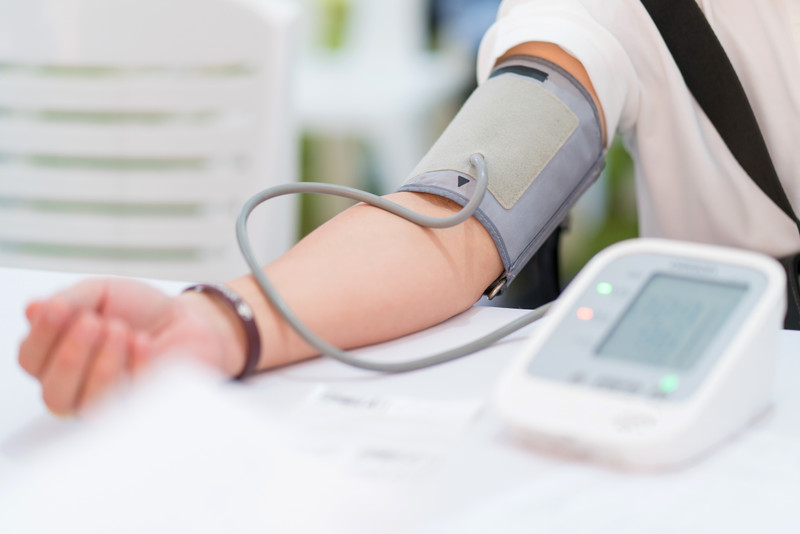It has been estimated that about 130 million Americans are suffering from at least one chronic illness, and half the leading causes of death in the US are firmly linked to preventable and treatable chronic diseases.
Convert the stats into dollar figures and we discover that roughly 90% of the $4.1 trillion being spent for health care in the US is associated with managing and treating chronic illnesses and mental health conditions.
For the record, a chronic disease is defined as one that has persisted for at least a year and necessitates ongoing medical care and/or limits daily activities.
Many types of chronic disease are prevalent in our world. One of the most common chronic diseases is hypertension, or high blood pressure. Here, we take a look at the prevalence and physiological basics of hypertension, and discuss five of the most applicable supplements for mitigating it.
Tracking Chronic Disease: Hypertension
In the United States, it is roughly 130 million people have some form of chronic disease, as defined by the U.S. Department of Health and Human Services. Hypertension, or high blood pressure, is one of the most common chronic diseases, alongside diabetes, arthritis, and obesity. Note, too, that May is also National High Blood Pressure Education Month. So consider this blog today’s healthy dose of good hypertension education.
Physiologically, hypertension occurs when the force of blood pumping against arterial walls is higher than normal, causing the heart to have to work harder to pump blood. Most people have no symptoms from hypertension alone, but some could experience headaches, shortness of breath, and nosebleeds.
High blood pressure is a common factor in many other diseases. This condition puts an individual at higher risk of heart disease and stroke. It is so common that it’s estimated that about 48% of adults actually have hypertension. Criteria for hypertension are a systolic blood pressure (BP) greater than 130 mm Hg, or a diastolic BP over 80 mm Hg, or a person’s regular usage of hypertension medication. About 25% of adults with hypertension have it completely under control, and only half have a BP over 140/90 mm Hg.
Lifestyle factors have a big impact on the development of hypertension. Obesity, chronic stress, poor diet (a diet high in salt and sugar), alcohol use, and lack of exercise can all contribute to it. It is necessary to take healthy steps to reduce and/or avoid hypertension, in order to reduce risk of heart disease, heart failure, stroke, eye problems, and dementia.
Supplements for Hypertension
A variety of supplements have properties which can help the body manage and reduce high blood pressure. Remember, these are to be taken as an addendum to healthy lifestyle habits, not instead of them. Here are five of the most effective supplements for hypertension:
Magnesium is a mineral that is crucial for bodily health; supplementing with it has been shown to reduce high blood pressure by a meaningful margin. One analysis of 11 separate trials showed that taking magnesium is correlated with reductions in both diastolic and systolic blood pressure in those with hypertension. Taking magnesium is especially useful for those experiencing hypertension that is related to magnesium deficiency.
Potassium is another mineral useful for hypertension. In fact, some consider it the most important mineral for managing blood pressure. Potassium is helpful because it supports urination, which helps deliver excess sodium out of the body.
CoQ10, or Coenzyme Q10, is a natural enzyme found in the body and in a variety of foods. It can be more effective when taken in supplement form. Studies show that supplementing with CoQ10 can reduce blood pressure. This effect has been found most prominent in those with certain conditions such as diabetes and dyslipidemia. 100-200mg of supplemental CoQ10 on a daily basis can provide this benefit.
Omega-3 fatty acids are naturally derived substances available in supplement form which have been shown to reduce blood pressure. Omega-3s help by reducing vasoconstriction. They provide other similar heart-healthy benefits including reduced arterial plaque, reduced inflammation, and lowered triglyceride levels. These benefits make omega-3 fatty acids an excellent supplement for high BP and overall cardiovascular health.
L-arginine is an amino acid which, once consumed, contributes to chemical reactions which help blood vessels relax and widen. Research supports the use of an L-arginine supplement for reducing blood pressure, including both diastolic and systolic blood pressure. Some evidence suggests it is more effective in women than in men.
If you or someone in your home has hypertension, you are capable of taking healthy steps to manage it. One or more of these applicable supplements could play a part in that. We recommend always consulting your healthcare provider before trying a new supplement, since some supplements could interact with certain medications.

